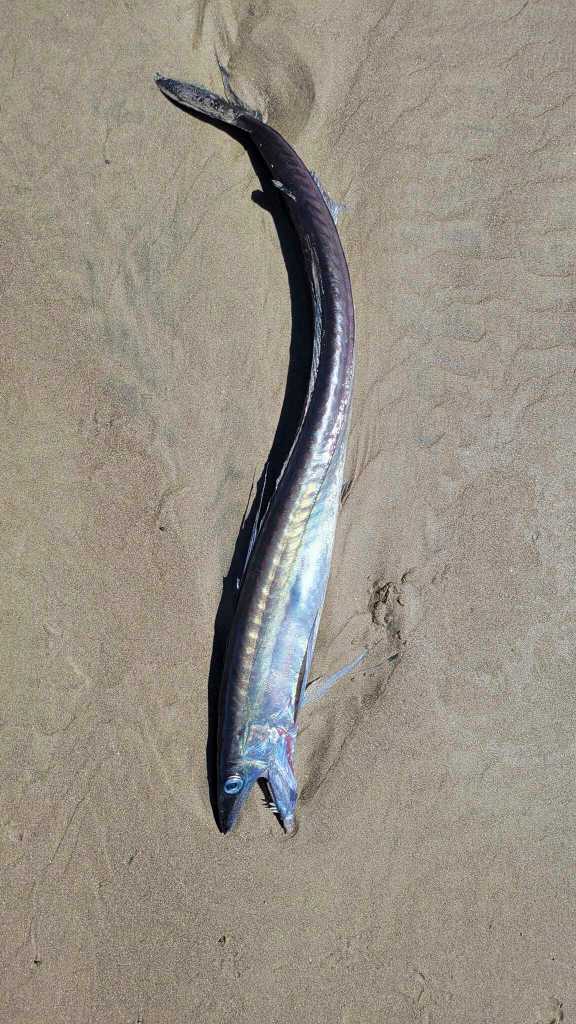Lancetfish washed ashore Oregon beaches, baffling scientists
Something about this smells fishy.
Scientists have been left baffled after several cannibalistic “twilight zone” creatures washed up on Oregon’s beaches in recent weeks.
Multiple lancetfish — one of the ocean’s largest fish that live about a mile below the surface — were found strewn across a 220-mile swath of the state’s coastline.
“No one is sure why they are washing ashore,” the state parks department said.
But not all of the famously carnivorous and hermaphroditic creatures are washing up dead.
At least one fish was found on the beaches still alive; it was “helped back to the ocean and it swam off.”
Lancetfish — whose scientific name Alepisaurus means “scaleless lizard” — live mainly in tropical and subtropical waters, but they migrate as far north as subarctic areas like Alaska’s Bering Sea to feed, according to the National Oceanic and Atmospheric Administration Fisheries Service.
Though they can be found in shallow waters, their preferred habitat is in the twilight zone, which lies between 650 and 3,3000 feet below the surface.

The lancetfish are not typically known to wander close to North American shorelines.
Scientists theorize the lancets that are washing up could be suffering from injuries, or are ill and can’t swim effectively.
They are think recent storms could have caused their arrival.
Read the full article Here


